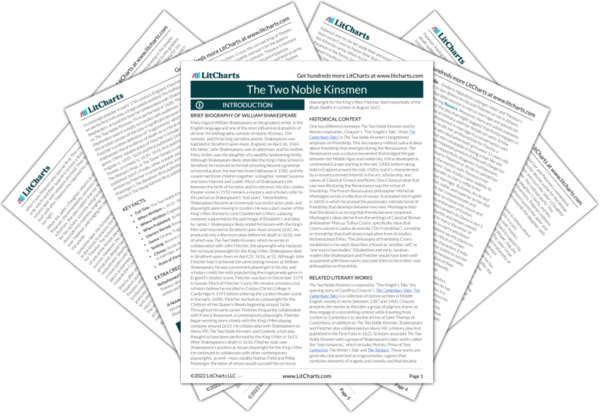This scene is essential in developing the personality traits that set the cousins apart. Arcite relies on crafty wisdom to make his point, using logic to try to manipulate Palamon. Here, Arcite shrewdly claims that the fact that the cousins are close enough to be the same person justifies their loving and pursuing the same woman, too. In contrast to Arcite's cool cleverness, Palamon is passionate and volatile. Suddenly, he's willing to go against everything he knows about being noble and virtuous and chivalrous out of sheer jealousy, not wanting Arcite to have the woman he wants for himself alone.
